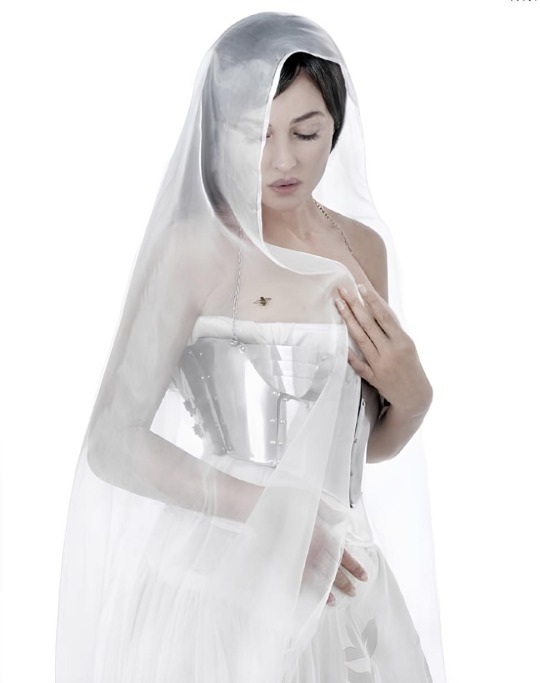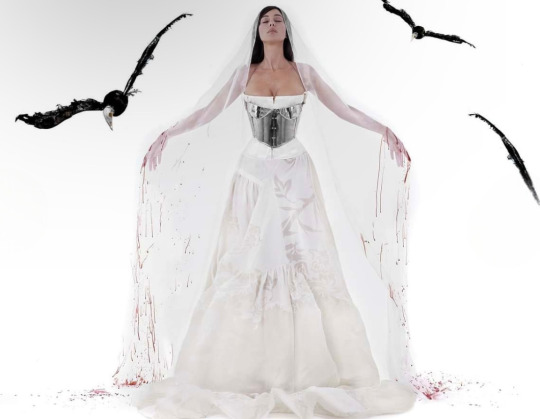#irréversible
Explore tagged Tumblr posts
Text









Monica Bellucci by Gérard Rancinan
#monica bellucci#gérard rancinan#photography#photoshoot#fashion#bram stoker's dracula#bram stoker’s dracula#malèna#malena#the matrix reloaded#the matrix revolutions#irréversible#irreversible#spectre#mary magdalene#the passion of the christ#james bond#gerard rancinan#00s#1k
1K notes
·
View notes
Text

Vincent Cassel & Monica Bellucci in Irréversible (2002)
87 notes
·
View notes
Text

Irréversible, 2002. Directed by Gaspar Noé.
22 notes
·
View notes
Text

Thomas Bangalter – Irréversible
26 notes
·
View notes
Text

Irréversible (2002) dir. Gaspar Noé
32 notes
·
View notes
Text


Thomas Bangalter - Irréversible
20 notes
·
View notes
Text
( Une célèbre grotte de glace de la Terre de Feu s'effondre dans un contexte de températures anormales )
#janvier 15#2025#ENVIRONNEMENT ( Une célèbre grotte de glace de la Terre de Feu s'effondre dans un contexte de températures anormales )#La Terre de Feu#située à l'extrême sud de l'Amérique du Sud#est un territoire connu pour ses paysages époustouflants et ses formations naturelles uniques. Parmi elles#une célèbre grotte de glace#admirée depuis des décennies pour sa beauté spectaculaire et son rôle clé dans les écosystèmes locaux#vient de s'effondrer. Cet événement dramatique suscite une inquiétude croissante chez les scientifiques#qui l’associent à une hausse alarmante des températures dans la région. Une merveille naturelle disparue La grotte de glace#située dans une région reculée de la Terre de Feu#était un joyau naturel. Sa structure était composée de glace millénaire sculptée par les vents et l’eau#créant des arcs et des cavités spectaculaires reflétant une lumière bleutée envoûtante. Elle attirait chaque année des chercheurs#des touristes et des photographes#fascinés par sa rareté et sa beauté. Cependant#les changements climatiques semblent avoir accéléré son déclin. Les températures anormalement élevées enregistrées ces dernières années ont#fragilisant sa structure. Cet effondrement#observé pour la première fois en [mois/année récente]#marque une perte irréversible pour la région. Un contexte climatique alarmant Des températures records Les experts ont constaté que la Terr#comme d'autres régions polaires et subpolaires#est particulièrement vulnérable aux effets du réchauffement climatique. Depuis les années 1990#la température moyenne de la région a augmenté de près de 2 °C. En 2024#des records de chaleur ont été enregistrés#avec des pics bien au-dessus des normales saisonnières. Un cercle vicieux L'effondrement de la grotte de glace illustre un phénomène inquié#c'est-à-dire la capacité de la surface à réfléchir la lumière solaire. Moins de glace signifie plus d’absorption de chaleur par la Terre#ce qui aggrave le réchauffement. Un signal d’alerte mondial La situation dans la Terre de Feu est représentative d’un problème mondial. Les#l'Arctique et les Andes. Ces pertes ne sont pas seulement esthétiques#mais elles compromettent également les écosystèmes locaux et le cycle de l’eau à l’échelle planétaire. Conséquences écologiques et sociales#notamment des micro-organismes adaptés aux conditions extrêmes. Ces écosystèmes#souvent méconnus
1 note
·
View note
Text
Perte de sentiments amoureux du jour au lendemain. / La perte de sentiments est elle irréversible - Faire revenir les sentiments de sa femme ou son homme. Il dit ne plus avoir de sentiments.
La Perte de Sentiments est-elle Irréversible ? Comment Medium Baba Vigan Peut Aider à Réparer une Relation. Les relations amoureuses sont souvent comparées à un voyage : elles connaissent des hauts et des bas, des moments de passion intense et des périodes de calme relatif. Toutefois, l’une des situations les plus déstabilisantes dans une relation est la perte de sentiments. Cette érosion…

View On WordPress
#Faire revenir les sentiments de sa femme#Faire revenir les sentiments de sa femme ou son homme.#Il dit ne plus avoir de sentiments.#La perte de sentiments est elle irréversible#Perte de sentiments amoureux du jour au lendemain
0 notes
Text










Hallway scenes
Movies - No country for old men (2007), The Lobster (2015), Irréversible (2002), In the mood for Love (2000), Twin Peaks (Season 2, episode 22), Inside Llewellyn Davies (2013), Punch Drunk Love (2002), The Grand Budapest Hotel (2014), The Shining (1980),
#no country for old men#irreversible#punch drunk love#the grand budapest hotel#the shining#the lobster#in the mood for love#inside llewyn davis#twin peaks#movies#film stills#film aesthetic#tv shows#wes anderson#gaspar noe#yorgos lanthimos#monica bellucci#vincent cassel#wong kar wai#coen brothers#stanley kubrick#kubrick movie#oscar isaac#colin farrell#rachel weisz#olivia colman#movie scenes#screen shots#favorite scenes#hallway
202 notes
·
View notes
Text




Irréversible (2002), dir. Gaspar Noé
161 notes
·
View notes
Photo

➤ Entangled in a vortex of time: 'Irréversible' (2002) by [Artist's Name]
#vincent cassel#film still#2000s#gaspar noé#drama#gaspar noé style#surreal#french cinema#monica bellucci#2002
192 notes
·
View notes
Text







Le temps détruit tout
IRRÉVERSIBLE (2002) dir. Gaspar Noé
#irreversible#gaspar noé#monica bellucci#vincent cassel#benoit debie#filmedit#filmgifs#moviegifs#new french extremity#film#cinema#movies
54 notes
·
View notes
Text




Monica Bellucci and Vincent Cassel in Irréversible (2002)
This movie was so hard to watch I couldn’t finish it.
#monica bellucci#vincent cassel#irreversible#celebrities#iconic#pop culture#hollywood#fashion#movies#2000s#2000s nostalgia#2000s aesthetic#2002#2000s cinema#2000s movies#2000s style#early 2000s#2000s scene#2000s core#2000s fashion#2000s music#00s#00s movies#actors#gaspar noé
366 notes
·
View notes
Note
“Milk Carton” — Self-explanatory, it was the only song I could think of that has the perspective of someone who survived a kidnapping. I also believe that establishing what is going to happen in the beginning helps build up a sense of dread. We know that a kidnapping is going to happen, we just don't know when.
“In the Pines” — A truly haunting song. The song was originally written by Lead Belly, but the first time I heard it was this Kurt Cobain documentary called Montage of Heck, where the final scene is Kurt performing the song at MTV Unplugged. There’s this moment in the song where Kurt makes this face that is absolutely chilling, almost like he’s Colonel Kurtz staring into the heart of darkness. The lines, “you caused me to weep, you caused me to moan, you caused me to leave my home / I wish to my Lord that I’d never seen your face / I’m sorry you were ever born,” also felt pertinent. All in all, I felt it sets the Southern setting, especially the North Carolina region, where you say Aegon takes Amara.
“Rampage” — I felt that this accurately captured Aegon’s demeanour. I don’t know whether they might have known each other prior to her abduction, but most kidnappings occur with someone who knows you. There will be a lot of songs where you just feel looming dread, and this is the first of them. “Milk Carton” is disturbing, but there’s no dread, because there’s no anticipation. Whereas “Rampage,” I’m going to assume, seems to be spoken from the perspective of a lover of a boy whom, it’s heavily implied from the references to the Columbine Shooters and Tate Langdon in American Horror Story, is ultimately going to shoot up a school. When I was a kid, my parents would play this song called, “Six O’Clock News,” about a woman whose lover goes on a shooting rampage, who has just learned she’s pregnant with his child. I always was very shaken by that song, and I can’t imagine what it must feel like to have loved someone who committed such atrocities; just the sheer guilt, the discomfort regarding how to mourn them, the thoughts of I should have known, I should have seen the signs…was unthinkable for me as a child, and is unthinkable now. In “Creek Blues,” another song from the same album as “Rampage,” you sort of get this mosaic of such “signs.” He shows the speaker his daddy’s guns, he kills dogs and leaves them to die by the nearby creek. I think, for me, I wanted to build up a sense of dread over the songs, until it reaches its pinnacle, sort of this mounting pile of evidence that something terrible is going to happen. I discuss the notion of warning signs in relation to violence and abuse in the explanation for “Sometime After Midnight.”
“It’s All Over Now, Baby Blue” — Chosen mostly because it inspired this creepy, creepy short story that we read in high school, about the immediate moments preceding the abduction of a teenage girl from her home. Incredibly unsettling story, and absolutely heartbreaking. The story, called “Where Are You Going, Where Have You Been?” was adapted into a movie in the 80’s. Honestly considering removing it, given that I’m trying to build up dread, and it’s not really a dreadful song. Let me know if you think it should stay.
“Sometime After Midnight”— I wanted to convey a sense of looming doom; there’s this moment in W.G. Sebald’s The Emigrants, where there’s this extensive idyllic depiction of Bavaria, and then this war plane crosses the sky. This section starts out with the understanding that it’s the account of a character’s mother, and that she wrote it while awaiting deportation to a Nazi death camp. And this endows the image of the war plane cutting across this clear blue sky above this bucolic Bavarian landscape with a feeling of absolute dread; they have no idea what is going to happen. It’s the equivalent to the tomb in Arcadia, or the ending of Irréversible: it’s a portent of doom. “Sometime After Midnight” is one such prelude; the speaker remarks to herself that she knows that she spent all day getting ready for the date, but that she has this feeling in her stomach that makes her feel uneasy. She remarks that she’s been told that bad things happen after dark, and then looks at the setting sun. It’s the equivalent to a puzzle piece falling into place. I do truly believe that there is an intuition that people have that something’s off, and that many, especially women, choose to ignore this feeling, tell themselves that they’re being silly or paranoid, only to realize that their gut was right. It’s meant to convey dread, and banality. While the speaker may have considered her day preparing for the date innocuous, just a bit of fun, in retrospect, the day will become far more significant.
I was too young to remember 9/11, but when I’ve asked my parents and my friends’ parents their stories of that day (I grew up very close to New York), they all reacted differently—my boyfriend's dad saw the second tower get hit from the train window, and stayed on the train, my friend's dad was in the South Tower and ran to the Hudson to get on one of the many boats that were trying to take people off Manhattan—but one thing detail was the same in all of their stories: there wasn’t a single cloud in the sky that day. The reason why this detail has crystallized in their head is because they should have known. It was only in retrospect that the day that began like any other became that day. We trace the final day of murder victims, what they wore, their last words to their parents and loved ones, because we want to prepare ourselves for the possibility that our banal, commonplace lives could be torn apart at a moment’s notice, that one day we might walk out of a door and never be seen again. I believe that we have an intuition about people, but not about events. The speaker of “Sometime After Midnight” does not know that this is the last day; she may not have spoken to any of her parents or friends or loved ones but instead spent all of it getting ready for a date that will end in either her abduction or her demise. She may have a gut feeling, but by the time she feels it, it's already too late. This is her last day, and all that she can do is watch "the sky turn black by the window-side."
“Bad Things”— Another song that I felt exuded dread, although in this case, the fear actually becomes realized. The opening riff almost hits like a stuttering heart, with this insistent clapping noise; it immediately evokes both despair and anxiety. The song's chorus reads like a nursery rhyme you tell children: bad things happen, and you are powerless to stop them. The chorus is also apt for a kidnapping: you leave home, and you never come back. I had never been able to decipher the spoken part, but in looking at the lyrics, they’re really chilling, given that they’re spoken by Jim fucking Jones. The lyrics read as such: "You’d have wanted to run, you’d have had to run with them, because anybody could’ve run today, they would have wanted to. I know you’re not a runner and your life is precious to me.” It’s essentially Jim Jones gaslighting his followers in the leadup to their mass suicide, telling them that they actually have agency over their fates. They chose to stay and kill themselves alongside him, he argues, because they didn’t run when they could have. They freely chose to stay with him and die with him. But this isn’t true; the inner circle would punish those who attempted to escape, and the event that precipitated the Jonestown massacre was a group of Jones loyalists gunning down the Congressman Leo Ryan and defecting members of the People’s Temple on an air strip as they tried to leave. Jones manipulated his followers into believing they had a choice, that, if they wanted to leave, they could have, when they never did. I think I recall Aegon using this rationalization in Chapter 10 of YSMMC: it was Amara's choice to go to the cabin, so he bears no responsibility for any of the acts he felt licensed to subject her to as a result of this choice. And, as in Jonestown, Amara’s “choice” in YSMMC wasn’t much of a choice, because it was either that or a confrontation with Jace, and Aegon knew this, and exploited it to his advantage. He helped create the conditions that would cause her to choose. It all reminds me of when I was reading Chapter 17 of YSMMC, and I was reminded of this passage from Lolita:
“Get in,” I said. “You can’t call that number.”
“Why?”
“Get in and slam the door.”
She got in and slammed the door. The old garage man beamed at her. I swung on to the highway.
“Why can’t I call my mother if I want to?”
“Because,” I answered, “your mother is dead.”
In the gay town of Lepingville I bought her four books of comics, a box of candy, a box of sanitary pads… at the hotel we had separate rooms, but in the middle of the night she came sobbing into mine, and we made it up very gently. You see, she had absolutely nowhere else to go. (140)
That is to say, Jim Jones, Humbert in Lolita, and Aegon in YSMMC all act as if the decision by their victims to have sex with them was their victims’ choice, when they were the ones who set up the conditions that forced their victims to do what the men say. And, even if Amara freely chose to go to the cabin, she didn't choose any of the acts Aegon subjected her to there. I figured that this would be the approach of Aegon in this AU; tell Amara that it was actually her choice. This song sort of represents the pinnacle of the lead-up: the kidnapping that we've been expecting has finally occurred.
Anyways, as always, thank you for the opportunity for me to sharpen my character analysis approach to get ready for school; the methodology that guides my interpretation of characters is essentially the New Critical close reading method, and requires that I reconcile all aspects of their character and actions with each other, to explain their motivations, etc. It's a great challenge to have to analyze characters when their writer is right there to correct you; you're a lot less likely to cast generalizing statements about characters; it's harder to pontificate falsehoods when God is right there, if that makes sense lol. It forces me to be much more discerning, and therefore hones my analytical process, so I thank you again for that!!! X Caroline
Absolutely insane descriptor behind each song in this playlist, and the thought put into them? Girl, you are going to ace your impending studies. I consider myself lucky that this silly little hobby I picked up attracted people who treat it as something real and genuine which then pushes me to improve.
I only really fix someone's analysis if I think it's interpreting a sensitive topic in a way that I don't think is conducive to open-minded discussion; that responsibility kind of feels like it falls on me to fix since it's my work they're reading.
But your analysis, as well as others who have had their interpretations, I love to ingest, because as a writer, it's so easy to feel like these characters are just mine. But in reality, I read an amazing book and I hold those characters in me in a way that the writer might not recognise or identify with. Someone might extract the gentleness of Aegon and Amara and want to hold that close, whereas I might have written that particular chapter/passage from a place of extreme violence and trauma. Both are correct because both are tangled up with human beings. And when someone gives me their approach, I get to experience this familiarity of my characters from a whole other vantage which is so, so fun.
I'm a fan of every song you've chosen, and even though I know I can't write this AU right now, the lyrics to each are painting scenes into existence. For instance, as I was reading (and listening), a scene came to me where Amara tries to escape from the moving truck, and when Aegon gets her back, he choke-slams her into the horizontal part of the seat, her neck bent at a crooked angle as her head hits the car door. He's kneeling on the gears and the brake, one arm angled up against the roof of the truck, crouched over her like a malignant beast in a painting. The physicality of him filling up the space while she curls up and tries to push at his chest with her feet...yeah.
The Lolita comparison and the instances in YSMMC where Aegon created an inescapable situation and then handed her the illusion of choice...YES. Exactly it. If we're speaking in terms Helaena would use, Amara is an insect missing several legs, and Aegon is the spider slowly spinning the web in circles around her. Or a ladybird around which he's drawing a shape and she keeps trying to avoid the new lines he's putting on the page, without realising she can just step over them. She regularly suffers from what I like to call a fuck fog but there's so much more happening when Aegon decides to actively manipulate her. The Targaryen trauma train is so real, and it's just inconceivable every single one of the siblings hasn't developed their own methods of "playing God" when things don't go their way.
Anyway, urgh, fucking juicy ask. Delicious. Nibbling on it like a chicken leg.
P.S. Before I forget, I didn't envision Aegon knowing her before he kidnapped her at first, but I sort of like that now. There's a scene in Room where she screams at her mother for telling her to "be nice to everyone" and that's why she helped her eventual kidnapper look for his dog that didn't even exist. Maybe Amara gave Aegon a smile in passing a few times at the place she worked, and it was never anything more complicated than that. A scrap of kindness he decided to poison and taint.
#this ask is absolutely fucking insane#clutching my head in sheer glee and awe#inmate 13453-079#your skin makes me cry#aegon x amara
45 notes
·
View notes
Text
il se trouve toujours un œil pour me voir et de cet œil on ne ressort pas
je suis prisonnière d’un regard enchevêtrée de cils qui dirigent mes gestes et mes paroles
je suis une poussière dans un globe oculaire qui ne résiste pas aux larmes je rêve d’être assez nocive pour provoquer des dégâts irréversibles
malgré les tentatives je ne sais pas couper les fils et je serai pour toujours le pantin de leurs yeux
mais je sais disparaître en plein jour être là où l'on m'ignorait changer de visage et de voix inconstante fumée j'allumerai le feu dans lequel je brûlais
13 notes
·
View notes
